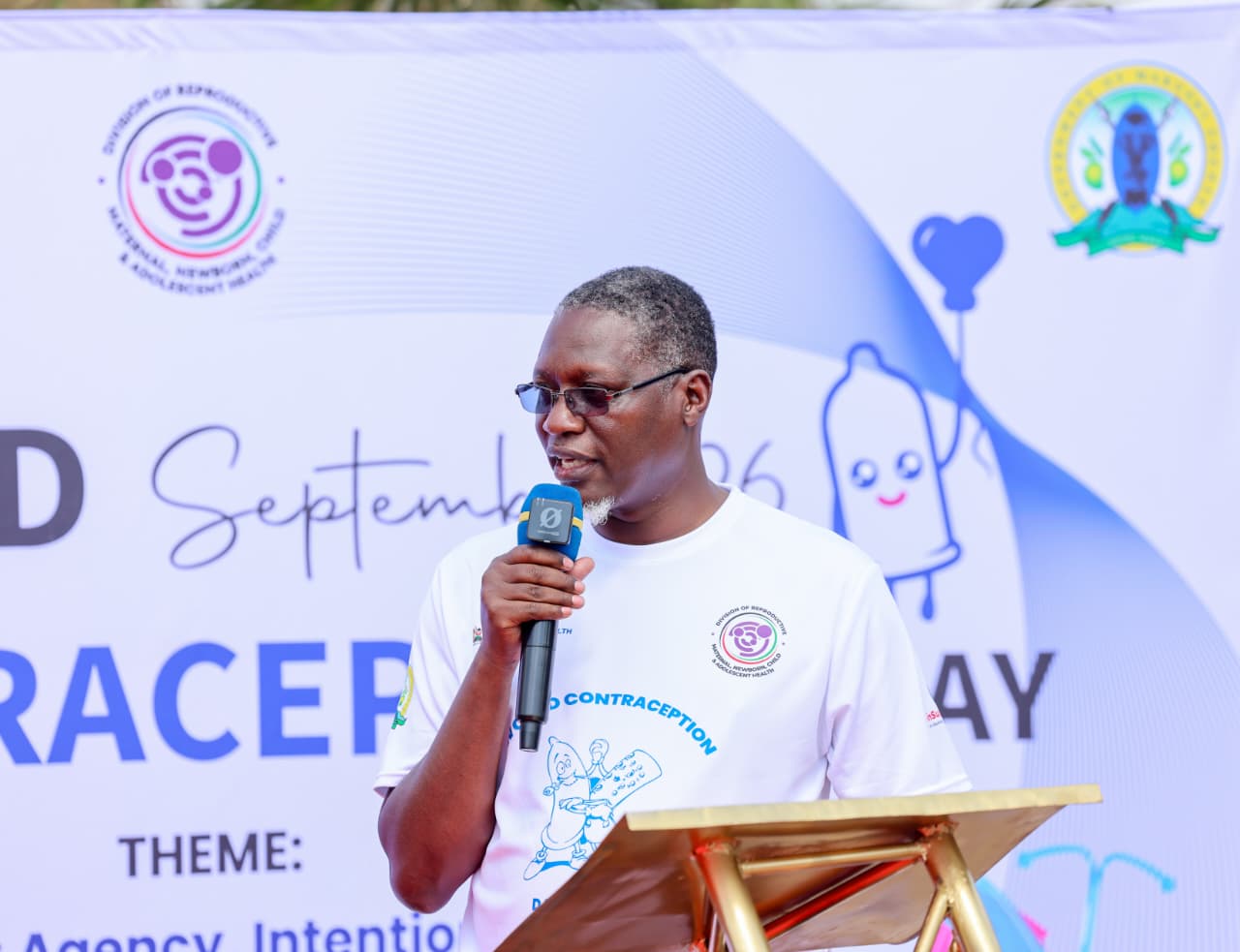 The Family Planning Program Manager Ministry of Health Dr. Albert Ndwiga addressing participants who came to commemorate the National World Contraception Day held at Mother and Child Hospital in Wote town, Makueni County on September 27, 2025. Photo by Andrew Mbuva.
The Family Planning Program Manager Ministry of Health Dr. Albert Ndwiga addressing participants who came to commemorate the National World Contraception Day held at Mother and Child Hospital in Wote town, Makueni County on September 27, 2025. Photo by Andrew Mbuva.
By Andrew Mbuva
Half of the women who seek abortions in Kenya each year undergo unsafe procedures, the Family Planning (FP) Program Manager at the Ministry of Health (MoH), Dr. Albert Ndwiga, has revealed.
Speaking during the commemoration of World Contraception Day (WCD) at Mother and Child Hospital in Wote, Makueni County, on Friday, Ndwiga said most of the women seeking abortions had unintended pregnancies despite having knowledge of family planning.
“According to data since 2022, about 792,694 women seek abortions annually, and half of these pregnancies are unintended. Nobody will seek an abortion of a pregnancy they intended. Sadly, 14 percent of women have an unmet need for family planning—they know about it but do not use it,” he noted.
The statistics further show that 21,000 women are hospitalized every year with complications from unsafe abortions, while 2,600 die annually due to such procedures.
The WCD event was held under the theme: “A Choice For All: Agency, Intention and Access.”
Ndwiga urged women to resist coercion, whether to conceive or use contraceptives, stressing that reproductive health choices must remain personal.
“Nobody should coerce you to get pregnant or stop you from using contraceptives—not even your mother-in-law. That robs you of your agency as free moral Kenyans,” he emphasized.
He attributed the crisis to limited access to safe services, high cost of procedures, weak policy frameworks, and inadequate sexuality education.
Ndwiga raised concern over stark disparities in family planning uptake, with some counties recording a prevalence rate of 75 percent while others remain as low as 1 percent.
“We run the same programmes and share the same messages countrywide. Why then do such disparities exist?” he posed.
He warned that family planning is not just a health issue but also an economic one.
“We cannot develop Kenya without planning the family. Access has been a problem, and we are working hard to balance both demand and supply so that everyone has equal access to services,” he said.
Ndwiga cautioned that Kenya’s heavy reliance on donor funding for FP is unsustainable, especially as donors pull out.
“We have no choice but to embrace domestic financing for family planning. Nobody else will come to assist us,” he said.
He disclosed that the MoH is developing Kenya’s first-ever national family planning policy, to be finalized by 2025, which will address key barriers while ensuring men’s involvement.
Makueni Deputy Governor Lucy Mulili urged the national government to increase FP investment to avoid stock-outs and ensure youth-friendly services for accurate information access.
She also called for universal health coverage in reproductive health to make contraception affordable and accessible to all, regardless of socio-economic background.
Mulili revealed that Makueni has established the Mother and Child Hospital, where about 20 mothers deliver safely daily, and has equipped it with an incubation unit for pre-term babies. Similar facilities are being constructed in Sultan Hamud, Kibwezi, and Mbooni Subcounties to boost maternal health.
Present at the event were health partners, CEC for Health Joyce Mutua, and other officials from both levels of government.